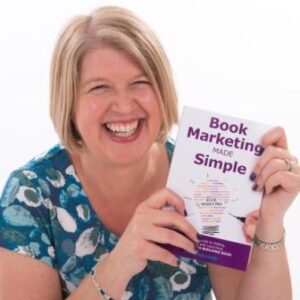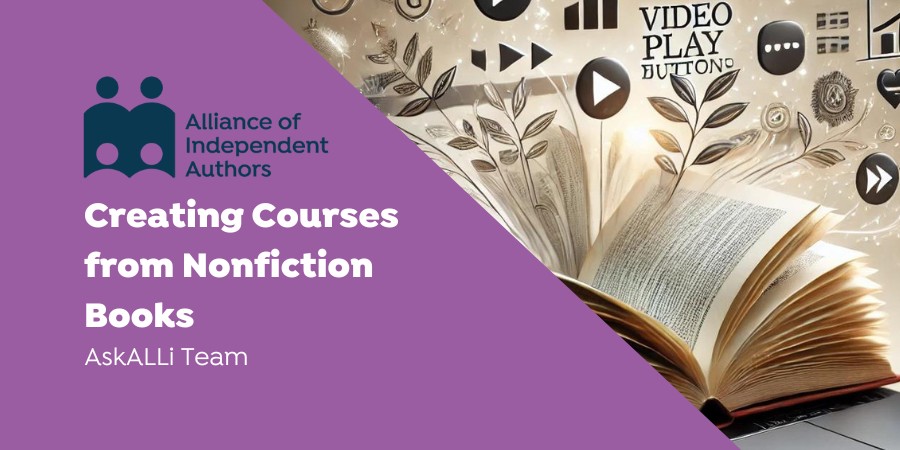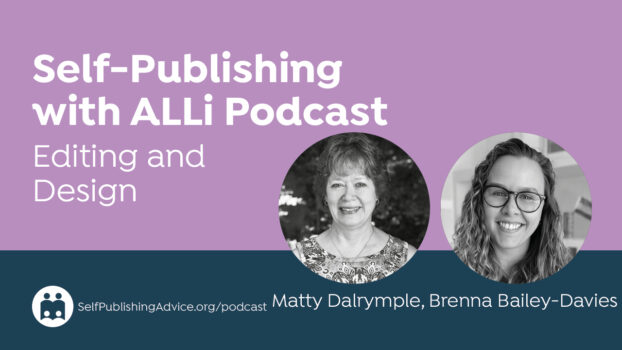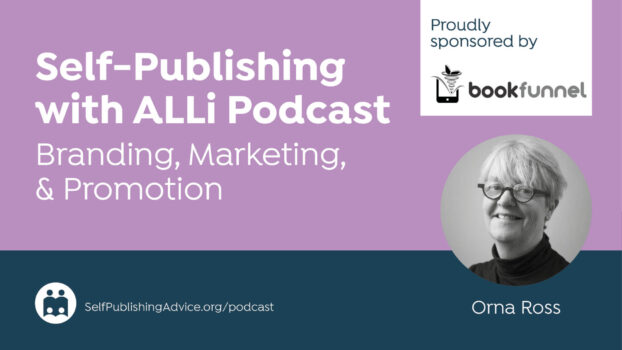Creating courses from nonfiction books is a growing strategy for authors to expand their reach and impact. Advances in online learning tools and platforms have made it easier for self-publishers to transform their books into engaging educational experiences, generating additional income and fostering deeper connections with readers. Success depends on a clear understanding of the new technologies and best practices that have emerged since we last covered this topic in 2017.
At the core of this strategy is the idea that a book can serve as the foundation for a more interactive, dynamic learning experience. Books, by their nature, are limited in how they engage readers—offering a one-way flow of information. By creating a course, authors can facilitate two-way communication, offer personalized feedback, and engage with their audience in a way that a book alone cannot. This interaction can help reinforce the key concepts of the book, making them more applicable to readers' lives. But the transition from book to course requires thoughtful planning and execution.
In this blog post, we will explore how four ALLi members—Anna Featherstone, C. Ruth Taylor, Karen Williams, and Emma Storris—have navigated this process. We’ll discuss the strategies they used, the mistakes they made, and the lessons they learned along the way. Whether you're just starting to think about turning your book into a course or are looking to refine an existing course, the insights shared here will help guide you through the process.
Anna Featherstone, ALLi Author Member

Anna Featherstone
Anna Featherstone, an ALLi member and the organization's Australian ambassador, offers a unique perspective on turning a book into a course—mainly because her journey began in reverse.
“My story is a bit of a full circle moment but in reverse. It went course – book – course,” she explained.
This unconventional approach has given her valuable insights that can benefit any indie author considering a similar path.
Anna’s journey began when she was asked to present a mini masterclass on self-publishing for a group of freelance writers. The positive reception led to an invitation to conduct a longer session. Recognizing the need to enhance her material, she decided to dive deeper into research and interviews, which ultimately led to the creation of her book, Look—It’s Your Book!, focused on self-publishing for Australian nonfiction writers.
“If I need to do that—I'm going to need to do plenty more research and interview more authors and ensure my information is up to date—so I may as well write the book at the same time!” she recalled.
Once the book was published, Anna realized that the material she had gathered could be expanded into online courses, which would allow her to provide additional resources and interactive components.
For example, she created modules like “How to create Advance Information/Book Sell Sheets” with DIY templates and “How to get more of your books into Australian Libraries,” which includes links to library contacts and strategies. These courses were designed to offer value beyond the book, providing authors with practical tools they could immediately implement.
One of Anna's key takeaways from her experience is the importance of specificity in course creation.
“Make the course/s really specific,” she advises, emphasizing that targeted content resonates more effectively with students.
Another crucial lesson she learned is the need to keep course lessons concise. “Keep lessons within the modules to between 4 and 12 minutes so they are easily consumed and remembered,” she said. In today's fast-paced world, where attention spans are shorter and time is precious, this approach ensures that learners can absorb information without feeling overwhelmed.
However, Anna is quick to point out that producing a course is not without its challenges. She emphasizes the importance of researching the right platform for hosting your course, as this can be a time-consuming and potentially costly endeavor.
Additionally, just like books, courses require effective marketing to reach their intended audience.
“Producing and offering courses is time-intensive, and like books, needs to be marketed well to get students,” she noted. It’s essential for authors to be prepared for the demands of both course creation and promotion.
People Learn in Different Ways
Finally, Anna stresses the need to understand the different ways people learn and to apply various teaching techniques to ensure that the course is effective.
This holistic approach to course creation not only improves the learning experience but also increases the likelihood of student success, thereby enhancing the overall value of the course.
Anna’s experience highlights the potential for indie authors to extend the life and reach of their books through online courses. By starting with a course, then writing a book, and finally returning to course creation, Anna demonstrates that there are many ways to approach this process. Her insights serve as a valuable guide for any author considering this path, offering practical advice on how to create meaningful and successful courses.
C. Ruth Taylor

C. Ruth Taylor
C. Ruth Taylor, a Jamaican authorpreneur, has a clear and ambitious vision: to make the Caribbean a hub of self-publishing. She’s well on her way to achieving this goal by turning her nonfiction books into courses designed to empower aspiring authors across the region.
“My aim is to encourage more people to self-publish and help more people make money with books beyond book sales,” she said.
Her approach to course creation is both practical and strategic, leveraging her books as foundational texts in a variety of courses that cater to different aspects of authorpreneurship and personal development.
One of Ruth’s standout achievements is her Publishing Secret$ 101 Masterclass on Udemy, which has attracted over 2,300 students. This free course is not just an educational tool; it serves multiple purposes, including as a pre-training assignment for her paid self-publishing business certification program.
“That course is also a lead magnet, just like a first free book in a series,” she explained. By automating the course, Ruth can effectively reach a wider audience without having to repeatedly explain the basics, allowing her to focus on more advanced training.
Ruth's courses are typically six-week or ninetey-day programs that blend Zoom sessions with self-paced tutorials. She designs these courses to be highly interactive and practical, using her books as the primary text and assigning specific readings to guide the learning process.
“I use the book like a text and assign readings,” she said. This method ensures that her students engage deeply with the material, which is particularly important for the personal development and writing-focused courses she offers.
What sets Ruth apart is her understanding of the Caribbean market and the specific challenges it faces, particularly when it comes to the cost of quality self-publishing. Her courses are designed to address these issues head-on, providing affordable, accessible education that helps authors in developing countries navigate the often-expensive world of self-publishing.
“Learning to self-publish is a key part of that,” she emphasized, noting that her mission is to train 10,000 Caribbean authorpreneurs by 2030.
Ruth has learned valuable lessons along the way about what works—and what doesn’t—in the process of turning a book into a course. For instance, she emphasizes the importance of keeping lessons short and incorporating various teaching formats, including short video tutorials and Zoom sessions.
“Some folks want to meet the course facilitator even once. I find that works for my folks,” she said.
She also builds the cost of the book into the course fee and aligns the course structure with the chapters of her books, which ensures a seamless integration of content.
Finding the Right Platform
However, Ruth also acknowledges the challenges, particularly in terms of marketing and sustainability.
“Sometimes you design a book-to-course and no sale. It's crickets,” she candidly shared.
Finding the right platform to host the course and attracting continuous enrollments are ongoing issues she faces. Despite these challenges, Ruth remains committed to her vision and continues to refine her approach, always with an eye toward expanding the self-publishing community in the Caribbean.
Ruth’s experience offers a wealth of insights for indie authors looking to transform their books into courses. Her strategic use of free courses as lead magnets, combined with her understanding of the unique needs of her audience, makes her a model for others to follow. As she continues to grow her impact, Ruth is helping to create a new generation of authorpreneurs who can thrive in the evolving landscape of self-publishing.
Karen Williams

Karen Williams
Karen Williams, a seasoned book mentor and former business coach, has a unique perspective on turning a book into a course—mainly because her journey started the other way around.
“I believe that it was a slightly more unusual way of turning a book idea into a course, as I did it the other way around—the course created the book!” she explained. This approach allowed her to refine her ideas in real-time, gathering feedback directly from those interested in the topic, which ultimately shaped her book, Your Book is the Hook.
In 2014, while transitioning from business coaching to becoming a book mentor, Karen recognized the value of engaging directly with her audience to clarify her process and teaching approach. To do this, she launched a series of free webinars to promote a six-week course she was developing.
“I knew that by working with people who were interested in this topic, I could get ‘in the moment' feedback, and produce a book based on what they wanted to know,” she said. The webinars served as both a marketing tool and a testing ground for her material.
The response was impressive, especially considering it was a decade ago when webinars were not as ubiquitous as they are today.
“Seventy people signed up for the webinars, eighteen signed up for the course, three of these signed up for the writing retreat, and three requested support on a one-to-one basis, resulting in just over £16k of income,” Karen shared. This success not only validated her course content but also provided the foundation for her book, which she completed and published within six months.
Karen’s experience highlights the efficiency of this reverse-engineering approach, where teaching content live forces accountability and accelerates the writing process.
Not for the Fainthearted
“Writing a book this way isn't for the fainthearted, but when you are committed to running weekly webinars to teach the content, you can't say ‘I don't feel like writing today!'” she noted. This method, while demanding, can be highly effective for authors looking to crystallize their ideas and engage with their audience simultaneously.
Today, as a book coach and mentor, Karen continues to encourage her clients to consider turning their books into courses. However, she acknowledges that most of her clients take a more traditional route, writing the book first and then expanding their content into courses, memberships, workshops, and other services.
“Many of my clients take a similar approach, although most write the book first,” she said, underscoring that there are multiple pathways to success in this space.
Karen’s story serves as a valuable example of how flexibility and responsiveness to audience needs can lead to both a successful book and a thriving course. Her experience offers indie authors a different perspective on how to approach the book-to-course journey, demonstrating that sometimes the best way to create a book is to teach it first.
Emma Storris

Emma Storris
Emma Storris, an author and literature major with a post-doctorate in teaching, has taken a thoughtful and innovative approach to turning her nonfiction books into courses. Her experience highlights the importance of creating a learning environment that caters to different types of learners.
“People learn in different ways, which makes it important to offer any teaching materials in several ways,” Emma explained. This understanding has been central to how she structured both her book, De Hagetisses Voedingsboek, and the accompanying course materials.
When Emma set out to create her course, she quickly realized that the existing course apps and plug-ins available on the market were too restrictive for her needs. Instead of settling for what was available, she decided to have a custom course environment built from scratch.
“I wasn’t happy with the options that existing course apps and plug-ins offered, since they didn’t give me the freedom I needed as a creator,” she said.
With the help of her developer, she was able to create a system that is not only easy to use but also adaptable and future-proof. This custom-built platform allows her to structure her courses exactly how she envisions, making the most of the offline course model she wanted to replicate online.
Emma’s approach goes beyond simply putting text and worksheets online. She emphasizes the need for courses to be “learner-friendly” by incorporating multiple methods of content delivery, such as audios, worksheets, and videos.
“If you choose to offer nonfiction as an online course, make sure it’s learner-friendly,” she advised. By providing content in various formats, Emma ensures that her courses are accessible and engaging to a broader audience, enhancing the learning experience and increasing the likelihood of student success.
Key Lessons
One of the key lessons Emma learned was the importance of testing the course before launching it widely. She enlisted the help of members from her Plant Vademecum, an online reference work related to her book, The Hagetisse’s Herbal Grimoire, to test run the course.
“Their feedback led to tweaks in the software setup,” she noted, highlighting the value of real-world user feedback in refining the course experience.
Investing in a custom-built system might seem daunting, but for Emma, it was a worthwhile decision.
“Sure, I did have to make an investment, but it was very doable,” she said.
The flexibility and ease of use of her custom platform have paid off, allowing her to create and manage courses that meet her exact specifications without the limitations imposed by standard online course platforms.
Emma’s experience underscores the importance of taking a thoughtful, user-centered approach when turning a book into a course. By focusing on the needs of her learners, investing in the right tools, and being open to feedback, she has created a course environment that not only complements her books but also enhances the learning experience. For other authors considering a similar path, Emma’s story offers valuable insights into the benefits of going the extra mile to create a truly effective educational product.
Conclusion
Creating courses based on nonfiction books offers indie authors a powerful way to expand their reach, engage more deeply with their audience, and generate additional income. As we've seen through the experiences of ALLi members like Anna Featherstone, C. Ruth Taylor, Karen Williams, and Emma Storris, the process requires careful planning, the right tools, and an understanding of different learning styles. By taking these insights into account, authors can successfully transform their books into valuable, learner-friendly courses that resonate with their readers and students alike.
Want to join the conversation or find out more?
 If you’re an ALLi member, head over to the SelfPubConnect forum for support from our experienced community of indie authors, advisors, and our own ALLi team, or share your own experience with the community.
If you’re an ALLi member, head over to the SelfPubConnect forum for support from our experienced community of indie authors, advisors, and our own ALLi team, or share your own experience with the community.
To access the forum, simply create an account (if you haven’t already) to request to join the forum and get going.
Non-members looking for more information can search our extensive archive of blog posts and podcast episodes packed with tips and advice at ALLi's Self-Publishing Advice Center.




